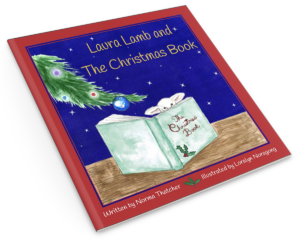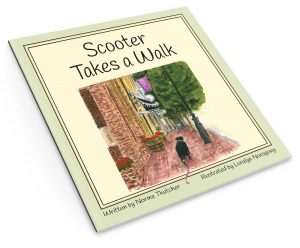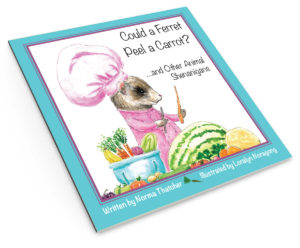
My friend Betsy Anderson is part of a group that runs grief writing workshops. Her own daughter Caroline died in 1995 at the age of 16 from a sudden illness, so Betsy is an inspiration of healing to workshop participants.
In November 2012 I encouraged a new friend Denise (who had lost her son Zane ten months earlier) to attend the local workshop with me. Hoping that Denise would find pathways of recovery in the experience, I wasn’t expecting much for myself. After all, I was already four years into the grieving process for my son Tim, and I believed that I was doing OK.
Ya, right. As the women began sharing their stories of the deaths of children, sisters, brothers, parents, and friends, I felt my composure slipping. Some losses were months old, several a few years, and one (a young child who had died from leukemia) was just five weeks. I felt the deep grief of all those women as if it were my own all over again. I sobbed nearly throughout the six-hour class. I had thought I would help Denise through the class, but it was she who patted my hand.
There was one poignant statement from a mom that was nearly a tipping point for me. She said, “I have closed doors that I might peek through but never open again.” I was embarrassing myself with the crying, but thankfully, I decided to see it through.
I learned the health benefits of writing on deeply meaningful experiences: a lowering of blood pressure, an increased production of T cells (immune warriors) and help in coping with chronic pain.
There were various methods of grief writing. One was sentence completion. The leaders provided prompts to certain aspects of our lives such as growing up.
- As a child, for me home was…
- When I was little, I was expected to…
- My first experience with death was when…
A second component of the program was writing short lists.
- Write three fears you presently have.
- What are four things you miss about your loved one?
- Name five things for which you are grateful.
- Because of the death of your loved one, what are three things you have lost?
- Because of the death of your loved one, what are three things you have found?
A two-part exercise instructed us first to make a list of words or phrases signifying what our lives had been like before the death of our loved one, and then a list of words or phrases that defined what our lives were like after the loss. Some examples from our group that day were:
Before: noisy, music, joyful, laughter, in control, safety, future, confidence, companionship, smiles
After: broken, never again, powerless, dazed, empty, rage, raw, lonely, questioning faith, tears
When the words and phrases of the group’s “after” were read out loud, it was as if a collective sigh echoed through the room. A community had been built because the feelings and emotions were so common. We weren’t the only ones! We weren’t strange or bizarre. We weren’t crazy. We were mourning.
The second part of the exercise was to choose one of the group’s Before and one of the After words/phrases and make an acrostic poem. For my After phrase, I chose Never Again.
Normalcy is difficult to find—thoughts of pre-drugs
Eventually is what I choose to recall.
Vivid images of the larger-than-life Tim
Entering the house, calling out “Hello Mama!”
Rich in spirit and love, Tim was.
And I know he is at peace in
God’s loving arms,
Always loving his family,
Interested still in the whole world,
Never to be forgotten.
After the workshop ended at 2:30, I went home and straight to bed. I was spent. But the experience was so meaningful to me that here I am, eight years later, writing about it. Writing about writing.
You don’t have to be in mourning to take advantage of the benefits of writing or journaling. You can be in any situation that is deeply meaningful to you. And I have good news: You don’t need to write every day, be a perfect speller, or know the proper use of a comma. You’re writing for yourself, for your own mental and physical health benefits.
I’ve included a link below that shows how beneficial writing is. Go buy yourself a beautiful notebook and begin.
~~~~~~~
Powerful Health Benefits of Journaling from Intermountain Healthcare.org




I remember that day well. Has it really been eight years? Carol Henderson ran that workshop. Her book, Farther Along, provides writing prompts and stories of the bereaved mothers in our writing group. Thank you for letting your blog followers know about the benefits of writing/journaling.
Hi Betsy. Thanks for being a first-time commenter. And I read Carol’s book because Denise bought it for me that day.
Thanks for sharing, Norma. Sounds extremely helpful and meaningful to the grief process.
Another suggestion I read from a study, especially to give young children a coping mechanism is to write the deceased’s name vertically on a piece of paper, then begin a word or sentence with each letter that expresses your thought or memory of that person. It’s a process that sounds simple for children. For example:
A pples were her favorite fruit
U sually walks her dog every day, even in the rain
N
T
S
U
S
A
N
Tim liked doing acrostic poems. When he was about 8 he did one for ADVENT that I post on my refrigerator each December. So Yes, I agree, great for young minds!
I just may try it. It has been 8 years July 7th, and I still feel so much pain. I cry, think about her each day and pray. I’m considering contacting someone for my mental health. But I will try writing. We’ll see how it goes.
I hope you saw my recent private email from my Yahoo account. Please let me know if you did not. Thanks.
BETSY IS A TREASURE!!!!!